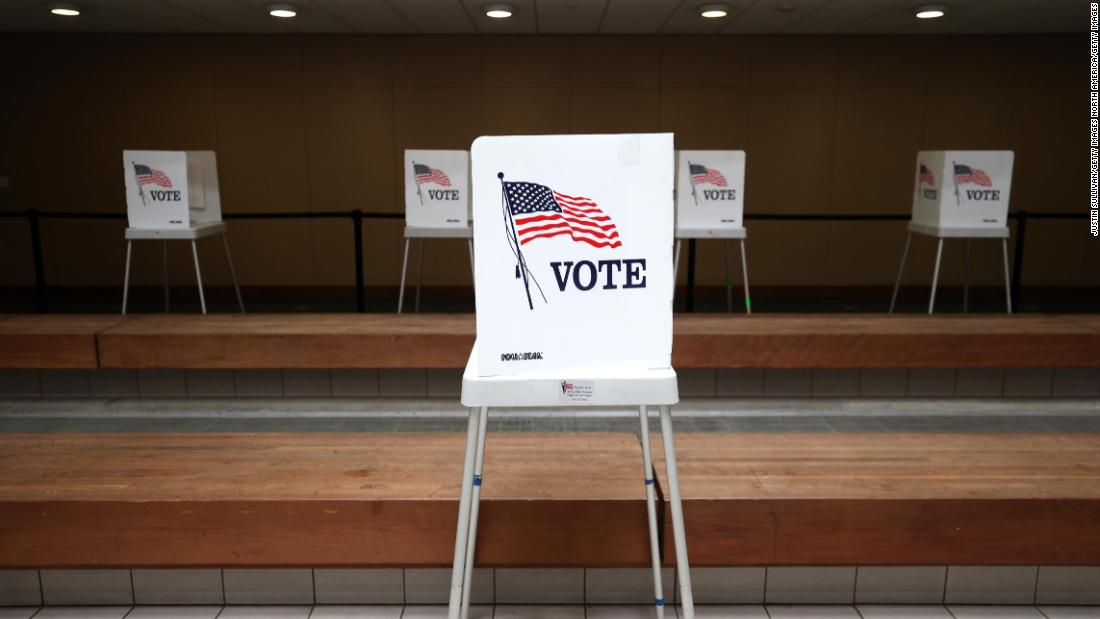Progressive and pro-voting rights groups vowed to continue fighting after the Senate’s vote failed Wednesday night.
“We are at a moment of reckoning in America. The Senate failed our democracy tonight,” said Eric Holder, the US attorney general during former President Barack Obama’s administration.
“Anything short of protecting the right to vote is a death sentence for democracy. This fight is far from over,” said Derrick Johnson, the NAACP president.
“This battle is not over,” said Voto Latino President Maria Teresa Kumar. “I remain hopeful that we will be able to enact legislation to preserve our democracy and restore faith in the electoral system — with or without Republican support.”
However, voting rights experts warned that the Senate’s failure to advance federal protections for voters would only lead to a continued push by Republican state lawmakers to restrict access to the ballot box.
“If Congress cannot act because of a broken Senate, and federal courts refuse to protect voting rights, then states will have an open invitation to abuse the rights of their own people. It is folly to think that these laws in the states are as bad as it can get,” said Michael Waldman, president of the Brennan Center for Justice at New York University Law School.
What is happening at the state level?
Republicans with full control of state government in several presidential battleground states — including Florida, Georgia, Texas and Arizona — imposed restrictive new elections laws in 2021. In the last year, 19 states passed 34 laws that restrict voting in some way, according to an analysis by the liberal-leaning Brennan Center for Justice.
Whether the new voting restrictions will depress turnout — and if so, among what populations — will be tested in this year’s midterms.
Already, there are signs that the laws enacted in 2021 are affecting elections — including in Texas, which kicks off the 2022 election season with its March 1 Democratic and Republican primaries, with the early voting window opening on February 14.
Under the new voting law, voters must include either their driver’s license number or the last four digits of their Social Security number on their applications. Those numbers are then matched against voters’ records. For a voter to be approved for a mail-in ballot, the numbers have to be the same.
However, not every voter remembers which number they gave when they initially registered to vote, leading to the application rejections.
Are there more new laws on the way?
The GOP’s effort to appease Trump by imposing new laws that make it harder to vote is continuing, and in some places accelerating, in 2022.
In Wisconsin, Republican lawmakers are considering a proposal to dissolve the Wisconsin Elections Commission, an election agency overseen by a bipartisan board, and transfer its duties to the secretary of state.
In Florida, Republican Gov. Ron DeSantis is asking GOP lawmakers to approve $6 million for a special police force to oversee elections — a proposal that elections experts say could lead to the intimidation of voters and organizers.
“This will facilitate the faithful enforcement of election laws and will provide Floridians with the confidence that their vote will count,” DeSantis said in his State of the State speech earlier this month.
The actions of DeSantis and Republicans in Florida have led Democrats there to plead for federal intervention.
The proposals come after a 2021 election in which 1.2 million of the nearly 3.3 million ballots cast came by mail — and Republicans won up and down the ballot in a state that has in recent years increasingly favored Democrats.
Is there anything to be done in Washington?
The failure of congressional Democrats to advance the Freedom to Vote Act and the John Lewis Voting Rights Advancement Act has effectively ended hopes of implementing national standards around election procedures that could have blocked some of the most restrictive new GOP laws.
A bipartisan group of lawmakers is working on another election-related overhaul.
Biden’s Department of Justice has taken steps to fight the restrictive voting laws in Florida, Georgia and Texas in court.
However, after the Supreme Court undid much of the Voting Rights Act in a 2013 ruling — and with conservatives now dominating the court — it’s unclear whether there are legal avenues to block any new state laws.
In a speech earlier this month, Garland, the attorney general, vowed that “the Department of Justice will continue to do all it can to protect voting rights with the enforcement powers we have.”
But he urged Congress to pass legislation that would expand voting protections. That legislation now has no path forward.
CNN’s Fredreka Schouten, Kelly Mena and Tierney Sneed contributed to this report.





